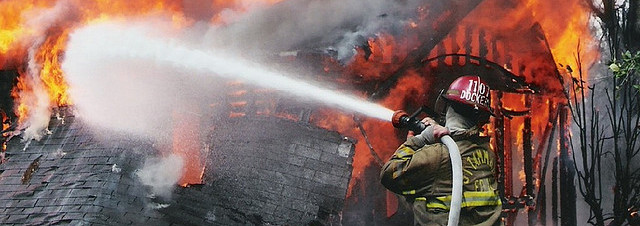 It is a truism of crisis communications that you should seek to establish your relationships with key stakeholders, before a crisis occurs. This is as true for individuals as it is for corporations. The corollary to this truth is that, if you are arrogant, smug, conceited or just plain rude in your normal interactions with stakeholders, you can expect no sympathy during a crisis. It is basic human nature that we tend to cheer when a jerk goes down.
It is a truism of crisis communications that you should seek to establish your relationships with key stakeholders, before a crisis occurs. This is as true for individuals as it is for corporations. The corollary to this truth is that, if you are arrogant, smug, conceited or just plain rude in your normal interactions with stakeholders, you can expect no sympathy during a crisis. It is basic human nature that we tend to cheer when a jerk goes down.
This reality was clearly demonstrated in the almost gleeful tone of the media coverage surrounding the arrest of Martin Shkreli on charges of securities fraud. Shkreli achieved fame, or rather infamy, as the CEO of the biotech firm Turing Pharmaceuticals, when he raised the price of Daraprim from $13.50 to $750 per dose. Daraprim is used to treat infections in people with weak immune systems and has been around for over 60 years.
The Daraprim price increase wa s made without warning and was roundly criticized by healthcare and public health officials, patient advocacy groups and several presidential candidates. In the media the move was positioned as an extreme example of corporate greed.
s made without warning and was roundly criticized by healthcare and public health officials, patient advocacy groups and several presidential candidates. In the media the move was positioned as an extreme example of corporate greed.
In his public statements Shkreli was utterly unapologetic regarding his decision on the price increase and stuck to the basic argument that he raised the price because he could. Further, when the editor of a biotech industry newsletter asked about the price increase via Twitter, Shkreli responded by calling the editor a ‘moron’. Clearly, this is not good media relations practice, nor the best way to endear yourself to the media as a group.
With his recent arrest, a wide range of media have devoted significant space to covering the case and detailing the charges filed against Shkreli. The editor who he labeled a moron has used his Twitter account to get a little payback by posting: “About the only profession Martin Shkreli will have left now is as a rap music producer with street cred. Hmmm.”
It is not terribly difficult to engage in activities that help establish a good reputation and a positive image (for either an organization or an individual). These include being courteous and professional in your communications, both internal and external. Making the effort to develop relations with the media that are based on mutual respect and seeking to answer media questions in a forthright and serious manner. Showing empathy for stakeholders over whom you may have power and engaging in appropriate CSR and/or philanthropic activities that are relevant to your mission. These actions yield benefits during normal times in terms of increased stakeholder trust and employee morale, and they can be critical in taking the edge of initial stakeholder reactions during a crisis.
Just to be clear, being a ‘nice guy’ will not make a crisis go away or lead to universally positive media coverage during a crisis. It will increase the chances that the media and other stakeholders will give you the benefit of the doubt in the immediate aftermath of a crisis and that coverage will be balanced and fact-based rather than accusatory.
The breathing room provided by a positive reputation will give the crisis communications team the time needed to put together and distribute the organization’s side of the story and this will ideally achieve a fair balance to the information available to stakeholders.
In the case of Martin Shkreli, when he had power and position he choose the path of arrogance and confrontation with the media and others. Now that he has been brought low by regulatory authorities, those that are willing to give him the benefit of the doubt are thin on the ground. Regardless of how his case in the courts turns out, the court of public opinion has already convicted Shkreli and he has no one to blame but himself.
Top 5 takeaways:
- It is vital to establish positive relations with media and other stakeholders before a crisis situation develops
- Creating a positive corporate reputation should be an element in any crisis preparedness program
- Good media relations and a positive reputation can improve the odds that during a crisis the media will give the organization time to share its side of the story before making negative editorial comments
- Executives who come across as arrogant in relations with the media risk particularly negative coverage during a crisis
- If an executive, or an organization, has a negative reputation among media and other stakeholders there may be a ‘rush to judgment’ in the event of a crisis
